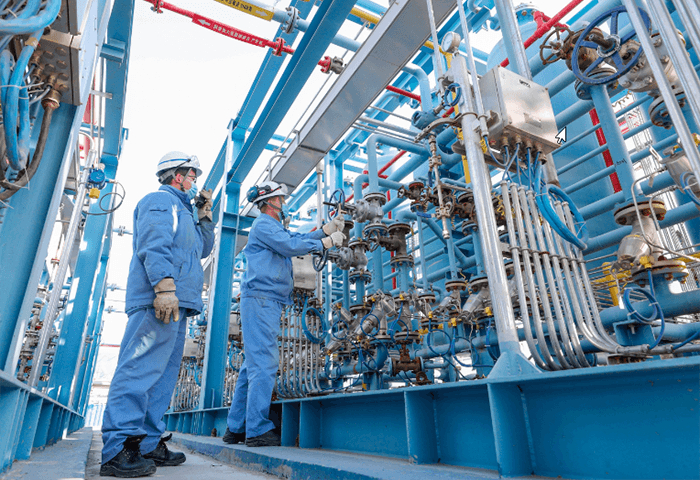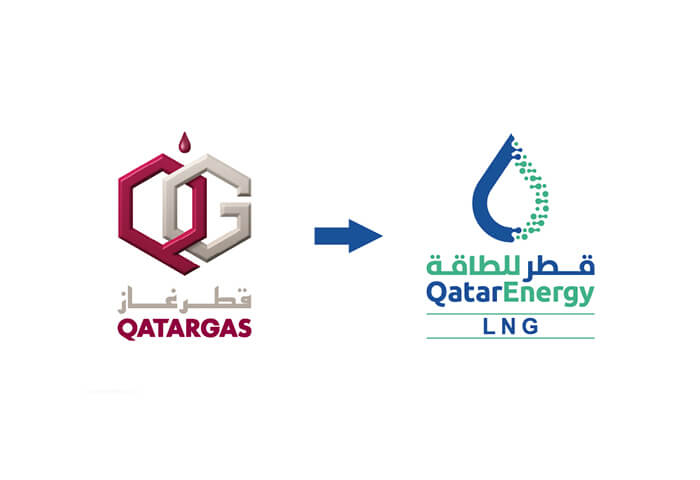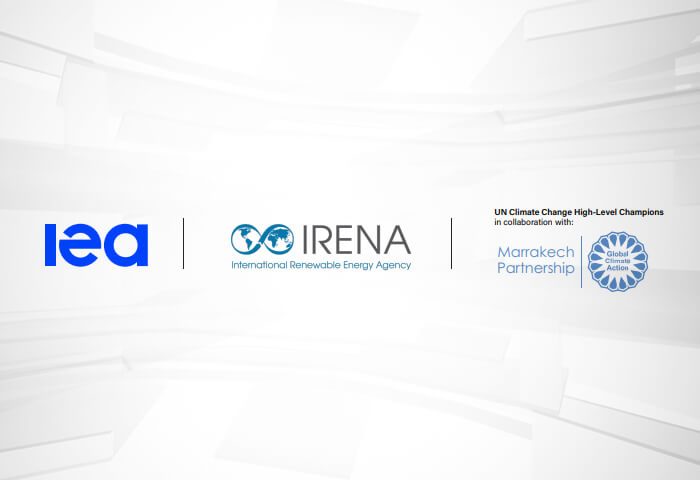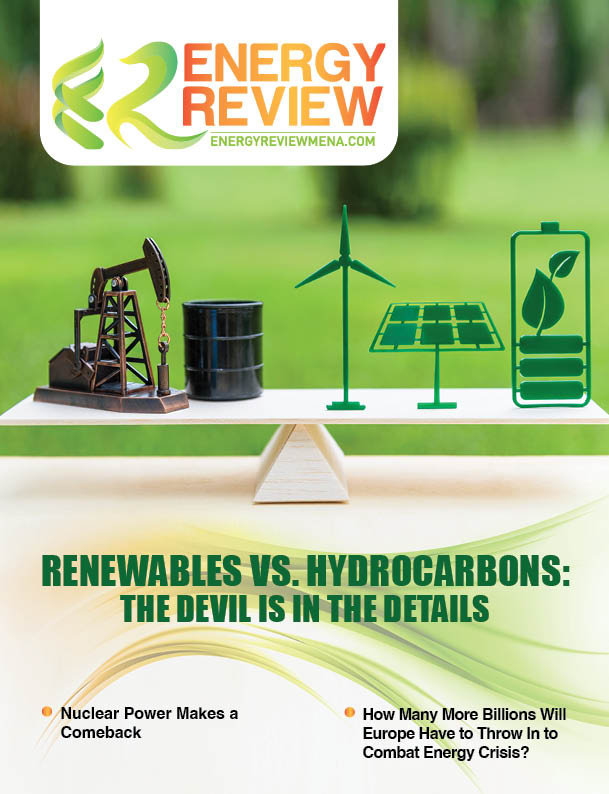Speaking exclusively to Energy Review, Dr. Imad Y. Hoballah, Chairman and CEO, Business Investments and Development Strategies (B.I.D.S.) and former Minister of Industry for Lebanon, shares his deep knowledge about the ICT industry and how it is shaping the MENA region with a special focus on Lebanon.
With your vast experience in the telecommunications space, including in the MENA and US regions, how can the ICT industry make a difference in the energy-efficient operations of businesses and industries?
The ICT industry has a crucial role to play in promoting energy efficiency and sustainability across various industries. By leveraging innovative technologies such as smart energy management solutions, cloud computing, IoT and green data centers, the industry can help businesses and industries optimize their operations, reduce their energy consumption and contribute to a more sustainable future.
Furthermore, the ICT industry can also promote awareness and education on sustainable practices and encourage businesses to adopt more eco-friendly approaches to their operations. It is imperative that the ICT industry continues to propagate efforts to improve its contributions to lowering the ICT Industry’s carbon footprint. Here are several of the many ways that the ICT Industry can make a difference:
Smart Energy Management: The ICT industry can provide businesses with smart energy management solutions that enable them to monitor their energy consumption in real time, identify opportunities for optimization and trigger actions to reduce energy consumption. These solutions can, in general, help businesses reduce their energy consumption and costs while also lowering their carbon footprint and improving the environment.
Internet of Things (IoT): The ICT industry continues to expand across different facets of life. Research and development (R&D) and focused efforts are exponentially growing to widely and quickly deploy IoT systems worldwide and in all aspects of people’s lives and businesses. The IoT enables businesses to monitor and control their energy consumption in real time. By deploying sensors and other IoT devices, businesses can monitor their energy consumption and optimize their operations to reduce energy waste. In addition, the promising capability of machine learning and AI will aid in merging smart energy management with IoT capability to advance system efficiency, reduce system outages and offer predictive maintenance for the overall system.
Cloud Computing: Cloud computing is a rapidly growing field that is reshaping the ICT industry and has provided businesses with numerous benefits such as flexibility, cost savings and improved productivity. Cloud computing can help businesses reduce their energy consumption by enabling them to operate more efficiently. By consolidating their IT infrastructure into centralized data centers, businesses can reduce their energy consumption, save money and consequently reduce their carbon footprint. Also, with the advancement of blockchain security, cloud computing can be used for advanced billing, especially for renewable energy systems.
Green Data Centers: The ICT industry can help businesses reduce their carbon footprint by building and operating green data centers and by incorporating energy-efficient hardware and server virtualization technologies to reduce energy consumption further. These data centers use renewable energy sources, such as solar or wind power, and are designed to be highly efficient, minimizing energy waste.
Awareness and Education on Sustainable Practices: The ICT industry can also promote awareness and education on sustainable practices and encourage businesses to adopt more eco-friendly approaches to their operations. The ICT industry could contribute to raising awareness and educating people about sustainable practices by providing training programs and workshops to both employees and customers.
Research and Development (R&D) and (Up-/Re-) Skilling: The ICT industry must invest in R&D related to energy and actively train, skill, up-skill and re-skill people and talents to make sure that they are able to benefit from the technological advancements and innovations in the ICT sector and other sectors that could serve the energy sector.
Overall, the ICT industry has the potential to make a significant impact on energy-efficient operations in businesses and industries. By providing smart energy management solutions, cloud computing, IoT and green data centers, in addition to R&D and (up-/re-) skilling, the ICT industry can help businesses reduce their energy consumption, save money and contribute to a more sustainable and eco-friendly future.
Based on your experience as a former minister of industry in the government of Lebanon, how can leaders in the energy industry ensure a justified and equitable energy security and energy transition? What are the potential bottlenecks?
As a former minister of industry in the government of Lebanon, I believe that governments, governmental agencies, civil societies and private sector leaders in the energy industry have the responsibility to ensure a justified and equitable energy security and energy transition by implementing the following measures:
Policies, Regulations and Fighting Corruption: Governments, governmental agencies, civil societies and private business leaders in the energy industry should develop policies and regulations that support the transition to a low-carbon economy and incentivize the adoption of sustainable practices, and they should actively enforce those energy regulations and policies.
It is also imperative that sector leaders make sure that strict anti-corruption laws are adopted and strongly implemented across the board and without leniency to ensure that businesses operate ethically and transparently.
Diversification of Energy Sources: Government, educational institutions, civil societies, and private business leaders in the energy industry should prioritize the diversification of energy sources, including renewable energy sources, to ensure energy security and reduce dependence on a single source of energy. This can involve investing in renewable energy projects and promoting the use of energy-efficient technologies.
Collaboration and Partnership: Collaboration and partnership between government, industry and civil society are essential to achieving a just and equitable energy transition. Leaders in the energy industry should engage with stakeholders, including local communities, to identify and address their needs and concerns and ensure that the energy transition is inclusive and equitable.
Investment in Infrastructure: Investment in energy infrastructure is critical to ensuring a just and equitable energy transition. This involves investing in sustainability R&D, energy-efficient buildings, electric vehicles and smart grids that can support the integration of renewable energy sources.
Research and Development and (Up-/Re-) Skilling: The energy industry must invest in R&D, train talents and proceed with major activities to skill, up-skill and re-skill people and talents to capitalize on the opportunities and increase the probability of benefiting from the technological and social developments and advancements and from the ever-growing innovations, especially in the energy sector.
However, there are also potential bottlenecks that can hinder the achievement of a just and equitable energy transition. These include:
Corruption and the Lack of Political Will: Corruption and the lack of political will to prioritize the energy transition can impede progress and hinder the adoption of sustainable practices. While the lack of political will makes it hard to implement policies and regulations for sustainable practices, corruption affects transparency and accountability and may cause environmental damage and social inequality through unsustainable business practices.
Resistance to Change: Resistance to change, or in other words, “the fear of the unknown,” particularly from incumbent industries, stakeholders and politicians, can slow down the energy transition and make it difficult to achieve a quick, just and equitable outcome. Overcoming resistance to change requires education, communication, cultural savvy and leadership.
Financial Constraints: The cost of transitioning to a low-carbon economy can be high, and financial constraints, like the ones existing in different countries, especially in the region, can make it very challenging to invest in the necessary infrastructure and technologies to move towards a sustainable energy environment.
Technological Limitations: Technological limitations, such as the lack of available energy storage solutions (where we are starting to see some fast advancements), can impede the integration of renewable energy sources into the grid.
Addressing these potential bottlenecks requires vision, leadership, collaboration, resources and innovation. It also requires strong laws and law enforcement systems. By collaborating and investing in the necessary infrastructure and technologies, leaders in the energy industry can ensure a just and equitable energy transition that benefits everyone.
Given the current economic crisis facing Lebanon, could you shed some light on the development of Lebanon’s energy sector? What are the challenges? The opportunities?
Lebanon is facing a severe economic crisis that has had a significant impact on the country's energy sector, which mostly relies on importing energy resources. The development of the energy sector has been extremely slow, inefficient, marred with corruption and insufficient, resulting in chronic power shortages and a reliance on expensive fossil fuel imports. The sector has greatly deteriorated in the past 40 years to the point where it is the number-two reason, after corruption, for the demise of the Lebanese economy and the social and financial state that the country has reached.
Here are some of the challenges and opportunities facing Lebanon's energy sector:
The Challenges:
Political Instability and Lack of a Clear, Agreed-Upon Policy: Political instability, in addition to the lack of clear, proven [and actualized] energy policies, has hindered the development of Lebanon's energy sector and escalated [the] deterioration of [its] infrastructure and services, negatively impacting the economy and the business environment in the country.
Corruption and Financial Constraints: The major corruption hold and the financial crisis have made it challenging for the government and the public sector to invest in the necessary and required infrastructure (the generation, transmission and distribution infrastructures are very old, insufficient and inefficient, and rely on expensive fossil fuel imports, coupled with corruption and locally controlled generator “mafias”) and technologies to develop the energy sector. In addition, unskilled public sector/service workers are also a major issue, causing major deterioration in the sector.
Dependency on Fossil Fuels: Lebanon's energy sector is heavily reliant on fossil fuels, which are expensive and environmentally damaging.
Energy Losses: The country experiences significant energy losses due to aging grid infrastructure as well as inefficient transmission and distribution systems. In addition, the sector suffers from low tariffs and unspeakable amounts of uncollected resources.
The Opportunities:
Renewable Energy: Lebanon has significant potential for developing renewable energy, particularly solar (in different parts of the country, especially in the Beqaa region), wind power (especially in the Akar region) and biomass (across the Bekaa and Akar regions), which could help reduce the country's dependence on fossil fuels.
Energy Efficiency: Improving energy efficiency in buildings, industries and transportation can help reduce energy consumption and costs. This will also require incentivizing energy-efficient buildings and industries.
Discovered Natural Gas Reserves: Lebanon has offshore natural gas reserves in large quantities and… has taken the necessary first steps to allow it to freely explore, extract, market and sell its gas that exists in great quantities. The reserves form a great opportunity for Lebanon to meet the country's energy needs, serve its people, economy and businesses, and push towards a much better sustainable energy industry.
Decentralized Energy Production: Lebanon could greatly benefit from privatizing and decentralizing energy production and distribution, allowing different regions/areas and the private sector to invest in the industry and provide the necessary energy to meet local business and public and government needs. Also, the decentralized system reduces the requirements for major investment in the centralized power systems (Lebanon is currently discussing a large investment in classical power generation, which will also require a major investment in the transmission and distribution network).
Regional Cooperation: Lebanon can benefit from regional cooperation in the energy sector, particularly with Arab and friendly neighboring countries that have developed energy infrastructure and technologies.
Help from the International Community to Eradicate Corruption: The international community and the Gulf states are working with Lebanon to eradicate corruption and streamline its processes and systems to allow it to adopt and implement laws that help the country with its drive towards reform, sustainability and prosperity.
Despite the many challenges and the great burdens, there are opportunities for Lebanon to develop a more sustainable and efficient energy sector. The government can work to develop clear energy policies, fight corruption, pass laws that allow private power generation and distribution, attract investments, and incentivize, promote the adoption of renewable energy and energy-efficient technologies [and facilitate] regional cooperation.
The UN climate conference, COP 28, is set for Dubai later this year, and a new YouGov survey shows that MENA region companies have a strong commitment towards sustainability. How is your organization, B.I.D.S., helping these companies to achieve their sustainability goals across the MENA region?
The MENA region is home to many companies [in the energy sector] that have a strong commitment to sustainability, and organizations like Business Innovation and Development Solutions (B.I.D.S.) are working to support these companies in achieving their sustainability goals.
B.I.D.S. is a consultancy firm that provides customized sustainability solutions to businesses in the Middle East and Africa (MEA) region, helping them to focus their investments, reduce their environmental footprints, optimize their operations and create sustainable value. This involves planning and implementing business re-engineering, conducting sustainability assessments, identifying areas for improvement and developing customized sustainability plans that align with the company's goals and objectives.
Some of the ways that B.I.D.S. is helping companies in the region achieve their sustainability goals include:
Policies and Regulations: B.I.D.S. is supporting governments in drafting policies and regulations that help the different countries with their plans for minimizing fiscal and social risks and for improving fiscal outlooks, as well as energy sustainability, safety and efficiency.
Innovative Management: B.I.D.S. offers its customers the opportunity to assess, plan, build, and manage different factories and operations and helps them re-engineer their businesses, streamline their operations and deal with the fast-developing changes in technologies, awareness and social advancements.
Energy Management: B.I.D.S. helps companies optimize their energy use, reduce their energy consumption and integrate renewable energy sources into their operations.
Sustainable Design: B.I.D.S. is working with companies in the construction industry to incorporate sustainable design principles into their projects, such as using eco-friendly materials and implementing energy-efficient systems.
Waste Management: B.I.D.S. is helping companies develop waste management strategies that minimize waste generation, reduce landfill waste and promote recycling and reuse.
Sustainable Supply Chain: B.I.D.S. is working with companies to develop sustainable supply chain strategies that promote responsible sourcing, reduce emissions and minimize waste.
Alternative Energy Sources for Other Regions: B.I.D.S. is helping countries with the development and implementation of plans to use energy sources in the region and transport them to other countries and other regions.
Overall, B.I.D.S. is playing a critical role in helping companies in the MEA region achieve their sustainability goals, promoting a more sustainable and resilient future for the region..
Many governments worldwide have been accused of not doing enough to limit global warming to 1.5 degrees Celsius compared to pre-industrial levels. What are the best strategies or investments that you would recommend for accelerating the reduction of climate-threatening greenhouse gas emissions?
There are several strategies and investments that can be made to accelerate the reduction of greenhouse gas emissions and limit global warming to 1.5 degrees Celsius. Some of these include:
Transition to Renewable Energy: Governments should invest in the planning, development and deployment of renewable energy sources such as solar, wind and hydropower. They should also invest in R&D and in talent training, skilling, up-skilling and re-skilling of the [related] resources. This transition will reduce the reliance on fossil fuels and lead to a significant reduction in greenhouse gas emissions.
Energy Efficiency: Improving energy efficiency in buildings, industries and transportation can significantly reduce energy consumption and emissions.
Carbon Pricing: Implementing a carbon pricing mechanism such as a carbon tax or cap-and-trade system can encourage industries to reduce their emissions by making it financially beneficial to do so.
Public Transportation: Investing in public transportation infrastructure and promoting the use of public transportation can reduce emissions from private vehicles.
Forest Protection and Restoration: Protecting and restoring forests can help absorb carbon dioxide from the atmosphere and reduce emissions from deforestation and land use changes.
Innovation and Technology: Governments should invest in the R&D of new technologies that can help reduce emissions, such as carbon capture and storage, hydrogen fuel cells and sustainable agriculture.
Merging IoT with ML: Governments, energy corporations and businesses, and university researchers should advance the necessary R&D activities to merge IoT and Machine Learning (ML) to advance renewable and sustainable energy systems.
International Cooperation: International cooperation is essential to addressing climate change. Governments should work together to develop and implement policies and strategies that reduce emissions and promote a sustainable future.
These strategies require vision, significant investments, political will and public support to be successful. However, action now can lead to significant reductions in emissions and a more sustainable future for our planet.
What are the goals that B.I.D.S. is focusing on this coming year? What lies ahead?
B.I.D.S. will continue to focus on helping investors start new businesses and factories, supporting companies in achieving their sustainability goals and promoting a more sustainable future.
Some of the areas where B.I.D.S. may focus its efforts include:
Policies and Regulations: B.I.D.S. will continue its effort to support governments and private businesses related to policies and regulations, minimizing fiscal and social risks, and improving fiscal and energy sustainability, safety and efficiency.
Innovative Management: B.I.D.S. will continue to offer its customers the opportunity to assess, plan, build and manage different factories and operations. It will continue to help them re-engineer their businesses, streamline their operations and deal with the fast-developing innovation environment as well as fast changes in technologies, awareness and social advancements.
Energy Management: B.I.D.S. will continue to work with companies to optimize their energy use, reduce their energy consumption and integrate renewable energy sources into their operations.
Sustainable Design: B.I.D.S. will continue to work with companies in the construction industry to incorporate sustainable design principles into their projects, such as using eco-friendly materials and implementing energy-efficient systems.
Waste Management: B.I.D.S. will continue to help companies develop waste management strategies that minimize waste generation, reduce landfill waste and promote recycling and reuse.
Sustainable Supply Chain: B.I.D.S. will continue to work with companies to develop sustainable supply chain strategies that promote responsible sourcing, reduce emissions and minimize waste.
Alternative Energy Sources for Other Regions: B.I.D.S. will continue to help businesses and countries with plans to use the abundant energy resources in the region and transport them to other countries.
Training, (Up-/Re-) Skilling and Education: B.I.D.S. can provide training on the latest technology trends and best practices. By promoting awareness and understanding of new technologies as well as (up-/re-) skilling and education, companies can become more competitive and innovative in their industries.
Overall, B.I.D.S. plans to continue to provide customized solutions to customers and companies in the Middle East and Africa region, helping them establish sustainable businesses and factories, achieve their sustainability goals and contribute to a more sustainable global future.









